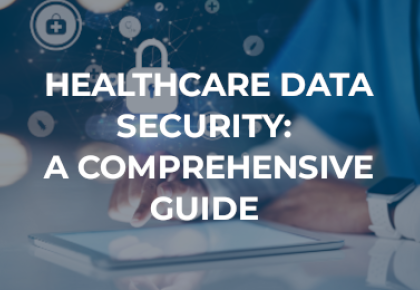HCMT-210
Lead and Innovate in Healthcare Administration
Prepare to make a meaningful impact in the healthcare sector with Champlain College Online’s Bachelor of Science in Healthcare Administration. This program, led by industry experts, provides you with the skills and knowledge needed to address the complexities of healthcare and drive innovative change across diverse healthcare environments.
Learn how to finish your program faster with credit for prior learning and experience.
Empowering Leaders in Healthcare
- Healthcare Business Acumen: Master business, financial, and economic principles tailored for healthcare settings, utilizing data and technology to support strategic decision-making.
- Systems Awareness and Global Perspective: Analyze and innovate within U.S. and global healthcare systems, preparing for adaptive change in healthcare delivery.
- Ethical Leadership: Develop policies rooted in ethics, law, and regulation, fostering professional growth and organizational integrity.
- Communication Skills: Strengthen your ability to communicate effectively with varied healthcare stakeholders, from team members to executive leadership.
- Team Leadership: Build skills in team and talent management, equipping you to lead with collaboration and cultural awareness in diverse healthcare settings.
Program Curriculum
Champlain's online healthcare administration courses encompass the top skills needed by today's healthcare professionals.
Graduates of the program are required to complete the following courses.
Professional Courses (66 credits)
General Education Courses (42 credits)
General Electives (12 credits)
Understanding financial statements and how to interpret them is important to all those working in businesses. In this course students learn the relationship among financial statements; study how to interpret this information and to apply this understanding in real-world contexts; and learn how to use financial information to help make sound management decisions.
Human Resource professionals have to be keenly aware of the employee lifecycle (ELC) - a method used to visualize how an employee engages with a company. The first stage of the ELC is attraction. Regardless of how strong your company is, without attracting great talent, your company will fail. The second stage, recruitment, is the period where you seek out and recruit the best talent to join your organization.
The perspectives, beliefs, and preferences of employees in today's workplace are more diverse than perhaps ever before. Today's high-performing managers are those who foster inclusive, positive, and responsive organizational cultures for their people. But with such varied perspectives, what cultural considerations make the most sense for an organization? Management in the 21st Century will teach students how to foster a workplace environment where people can flourish and are motivated to meet objectives and ambitions for the organization.
Students will learn about the application of positive individual and group strengths and capacities that can be recognized, evaluated, and expanded to advance organizational well-being. This course encourages students to apply positive organizational behavior processes to everyday challenges organizations face to drive positive workplace behaviors and outcomes. This course also helps students to practice and gain skills, knowledge, and competencies to become positive and impactful leaders and change-makers from whatever position they hold.
MGMT 240 is a finance course for managers. It explores financial measurements, the artful application of numbers to solve problems, building financial analysis skills, and the big-picture context needed to understand why finance matters in business management and decision-making. A subset of topics covered in the course include the time value of money, financial statement analysis, ratio analysis, investments, and capital management.
Project Management is the formal application of knowledge, skills, tools, and techniques to project-based activities to meet organizational requirements. Project management is accomplished through the use of processes such as Initiating, Planning, Executing, Monitoring and Controlling, and Closing. Project managers can divide projects into these phases to provide better management control with appropriate links to the ongoing operations of the organization. Collectively, these phases, known as the project life cycle, form the foundation for the practice of project management and are guided by the Body of Knowledge from the Project Management Institute (PMI).
This course introduces the core terminology and principles of marketing. Students learn about the marketing mix (product, price, place, and promotion), market segmentation, and how external factors such as the economy, technology, culture, and competition influence marketing decisions. The course also examines how marketing fits within an organization and contributes to business success, along with how ethical considerations, cultural awareness, global trends, and social responsibility shape marketing practices across industries. No prior business experience is required.
Compensation and Benefits will provide students a detailed understanding of how to develop a Total Rewards Program (TRP), and the strategic choices employers make when selecting TRP financial terms. The course covers the implementation of compensation strategies, benefits packages, work-life balance programs, performance and service recognition strategies, and career development strategies.
New product or service development is a creative process. When done well, it creates a culture of innovation identified by interaction among multiple organizational functions. Students are introduced to the complexity of the process and to the systems needed to manage it. They will explore steps in the process including generating ideas, developing the concept as well as analyzing and evaluating it. Students will also consider the increasing pressure to adapt products/services to foreign markets.
Students gain a systematic overview of the U.S. health care system, including the role of the public and private sectors. Federal and state health policy and legislation are examined in depth. Students develop an understanding of the complex social and environmental issues that are driving the need for quality improvement, performance measurement and the use of information systems. They become familiar with the various mechanisms through which health services are delivered and also compare the U.S. health care system to other systems outside the U.S.
Students examine the role of information systems in achieving performance improvement in health care delivery, and develop the skills necessary to manage information systems. Students learn to manage health information technology to improve patient care, comply with federal and state regulations, and increase clinical and operational efficiencies.
Prerequisites
Students gain a systematic overview of the financial operations of common health care organizations, both public and private. They gain knowledge about various financial techniques and tools applied to health care settings including revenue stream management, budgeting and resource management allocation, and third party payer management. Students identify and analyze key issues confronting the financial management of health care systems and provide strategies for effective management of these financial challenges. This course will emphasize the intersection and integration of health resources management, both clinical and financial, in quality improvement efforts.
Prerequisites
Take HCMT-210
Students learn about the laws, government policies and guidelines, and ethical considerations related to the operation of health care systems. Within this context, students explore HIPAA, informed consent, health IT compliance, anti-trust issues and organizational structures in health care. Students focus on the implications of laws and regulations on the management of health care services, particularly with respect to information systems, costs and, day-to-day operations.
Prerequisites
HCMT-210
Explores health communication as an emerging specialty in the health care field. We foster a broad-based conceptual understanding of health communication and its role in the contemporary U.S. health care system. Students consider the intersection of health and communication, emphasizing evidence-based approaches and ethical frameworks for research and practice. Areas of research include: provider-patient interaction, social support networks, health information and technology systems, medical ethics, health policy, and health promotion.
Prerequisites
TAKE HCMT-210
Students learn about computerized clinical information systems and computer-based patient information management. They explore health information systems within the context of the work environment, and associated business processes, with emphasis on clinical data and emerging clinical technologies. Students gain skills in managing change in clinical systems to build buy-in, engage individuals and ultimately change workflow. Students learn how cost-benefit analysis, return on investment, requests for proposals, and depreciation affect decision-making.
Prerequisites
HCMT-210
Students gain an understanding of the health care industry's organizational performance measures and assessments related to the improvement of healthcare service quality. Topics explored include traditional quality, structure and process assessments including risk management, credentialing and the role of oversight agencies; outcomes-based process improvement methods focusing on rapid-cycle tools, such as PDSA, and using small tests of change. Students apply measures and assessments directly to the complex issues and concerns of health care administration.
Prerequisites
HCMT-310
With the assistance of faculty, students develop and complete an exploratory project in health care administration, giving them the opportunity to independently integrate and apply professional and research content in a healthcare setting of their choice.
Prerequisites
Complete 108 credits
In addition to the following requirements, students must also complete 3 Credits of a General Education Elective (Any ARTS, COMM, CRIT, ECON, ENGL, HIST, MATH, PHIL, PSYC, SCIE, SOCI, MKCM 120, CRIM except CRIM-225)
This course introduces students to the foundational concepts needed to communicate effectively in writing for academic study and professional development. Students will also learn to read critically to evaluate an author's message. Students will be introduced to rhetorical modes and their role in the development of written communication. Students will also learn how to use revision strategies to create written communication that meets its intended purpose for its intended audience
This course builds on students' proficiency in the writing process and rhetorical modes to introduce the use of sources in written communication. Students will practice information literacy as they learn to determine information needs from sources, develop effective search strategies, and incorporate sources in written communication, legally and ethically.
Prerequisites
Complete ENGL-100
Starting with a frame of human communication as a dynamic system of interactions in which people make choices that impact their relationships, other people, and themselves, students will define theory-informed communication concepts and processes, and critically examine how they apply to everyday life across a variety of contexts. Students will reflect on how the theory, concepts and processes apply to their own lives in becoming competent communicators who are knowledgeable, skilled, and versatile.
This course examines the principles of effective small group interaction. Students will analyze group development stages and small group roles. They will identify and evaluate communication skills that enhance small group cohesion and problem-solving. Students will explain how conflict affects group processes and compare face-to-face versus digital collaboration environments. These skills prepare students to participate effectively in group settings across academic, professional, and community contexts.
Students will learn and apply critical inquiry skills to analyze persuasive communication created by others and to develop persuasive communication/arguments of their own to solve problems in professional, civic, social, and personal contexts. Specifically, students will learn to recognize fallacies in logic; apply inductive and deductive reasoning strategies to the interpretation and development of persuasive communication; evaluate the validity of sources; and develop logically sound persuasive communication. Students will explore the roles of self-awareness, empathy, and ethics in the context of critical inquiry and the development of arguments.
Prerequisites
Complete ENGL-110.
This course is an historical overview, and examination of the evolution of digital, film, and print media, and their functions. Students will identify and analyze contemporary problems of the media such as the legal, social, economic and psychological implications of their relationships with society. They also will examine the ways in which marketing and PR professionals utilize the mass media channels to reach their intended target audiences.
This course explores the complex and evolving relationship between human beings and technology. Through a multi-disciplinary approach that draws on fields such as sociology, psychology, philosophy, and history, students will examine the ways in which technology has shaped human culture, identity, and values, as well as how humans have influenced and continue to influence the development, adoption and use of technology.
Mathematical reasoning, when applied to everyday and professional lives, has two dimensions: logic for deterministic situations and probabilities for non-deterministic situations. This course aims to help students develop these mathematical reasoning skills.
This course introduces students to basic statistics for data literacy. With a focus on exploring real-world data, students will interpret numerical information and utilize the tools necessary to complete the entire statistical process: designing a study; gathering, organizing, and analyzing sample data; and making inferences about a population. Students will demonstrate data-driven decision-making and effective communication of numerical data.
Introduces students to the biochemistry and physiology of nutrition and exercise. Emphasis will be placed on human body systems such as musculoskeletal, digestive, respiratory and circulatory, and their relationship to nutrition and fitness. Students will also study the biochemistry of energy conversion as it relates to exercise physiology. Laboratory sessions are designed to reinforce, by a hands-on approach, the principles discussed in lecture. Course includes two laboratory hours per week.
Students will develop the ability to apply scientific methods to understand the natural world, to identify scientific aspects of daily life, and to evaluate the quality of scientific information based on its source and the methods used for its generation.
In this course, students will gain an introduction to classical mechanics and learn about motion, force, energy, and momentum. The course covers vectors, scalars, and coordinate systems, as well as kinematics in one and two dimensions, Newton's Laws of Motion, circular motion, and kinetic energy and work. Students also learn about potential energy and energy conservation, collision theory, rotational motion, moment of inertia, torque, rotational dynamics, and angular momentum.
This course will introduce students to major streams of social justice thought, including historical social justice movements, theoretical problems having to do with social equality, personal freedom, marginalization, and stigmatization, and the ways in which civic and professional communities respond to these issues.
With pressure and release, a window opens and closes, recording light on a sensor. The simple action captures the instinct, judgement, and skill of the person behind the lens. This class will begin a study of the art and craft of photography. Students will develop their vision and their understanding of how to achieve it. Solid skills will be learned and many doors will be opened.
A survey of the continuing change experienced in art since the 15th century. Students will examine how an image is achieved as well as the significance of the subject represented. Individual inquiry concerning the nature of art is encouraged.
Students learn to appreciate films through the critical analysis of various elements of mise-en-scene, cinematography, editing and sound. The course introduces the conventions of classical Hollywood cinema, considers the work of one major director (auteur), and surveys selected international and independent films. Students view and discuss films each week.
Students in the course will explore the cultural history of the music genre broadly referred to as rock. Students will explore the social, economic and political contexts that are influenced by and that influenced each style in the United States. By listening, watching, reflecting upon, discussing and writing, students will explore how music takes on meaning, personally, and culturally. Topics and themes include the relationships between and among gospel, country, funk, folk, disco, rap and hip hop; the role of business and technology in those relationships, and political or transgressive elements of rock music.
Specific application of common tools for writing in the working world. Students will be instructed in rhetorical strategies of professional writing including style, report formats, editing, document design, and integration of visual aids. Students will complete a semester-long writing project; oral and written reports associated with the process of problem-solving within the project will be included.
Prerequisites
ENGL-112 or COR-125
Students will learn how to create conditions for successful conflict engagement, a necessary skill for any professional. The course focuses on the foundational capacities to remain calm and connected with oneself and others. In this state students can access helpful ideas and responses and be their best selves regardless of environment. Improving facility for conflict creates stronger relationships and reduces fear. By the end of the course, students will understand that disagreement and difference can become a source of personal and interpersonal growth.
In this course, students will explore and apply writing principles and techniques to effectively interpret and write technical workplace materials. Students will enhance and gain skills to communicate business and technical information by producing instructions, describing processes, applying document design elements, creating and integrating illustrations, researching and writing proposals and formal reports, and presenting content for decision-makers.
This course introduces students to the fundamentals of substantive criminal law. With this foundation for understanding the legal system students will identify the essential elements of crimes, including the criminal act, criminal state of mind, and jurisdiction. They will examine the rationale underlying criminal law, factors affecting criminal responsibility, and legal defenses. By analyzing real-world scenarios, students will develop skills to distinguish lawful from unlawful actions and prepare for advanced studies or careers in criminal justice.
This course focuses on the rules and procedures governing how the American criminal justice system must process individuals suspected, accused, and convicted of law violations.
In this course, students will explore the theory and fundamentals of criminal investigation, emphasizing practical applications for evidence handling and case development. Students will review basic responsibilities of investigators and protocols for report writing, evidence collection, and preparation of cases for trial. The curriculum examines investigative approaches for various crime categories, including violent offenses, property crimes, terrorism, and hate crimes, while introducing comparative perspectives from diverse legal systems.
Prerequisites
Take CRIM-120.
Principles of Economics introduces the fundamental concepts of economics - the study of how people manage resources, and how they react to scarcity. This course focuses on both microeconomics (the behavior of consumers and companies) and macroeconomics (large-scale economic factors such as employment and interest rates), so that you'll gain a broad understanding of how a modern market economy functions, how decisions in business settings are informed by economics, and how economics applies to your everyday life.
Students will study important themes in the social history of the United States since the Civil War. This course allows students to expand their critical thinking skills through an examination of primary and secondary sources. Themes might include: the evolving status of women; the immigrant experience; the concept of the American dream; the paradox of freedom vs. slavery; the minority experience; the tensions between social classes. Students will be evaluated primarily on writing assignments.
In this course, students will explore broad, foundational knowledge in psychology, including its history, major theorists and a survey of psychology subfields such as developmental, cognitive and social psychology. Students will also describe and assess the role of ethics and social responsibility in the study and application of psychological theory and practices.
In this class, students will explore how social relationships, groups, societies and culture develop and change over time. From a sociological theory foundation and employing the sociological imagination, students will examine the impact of social structures, institutions, and systems on individual lives. Students will apply sociological research methods to investigate sociological phenomena in their own lives.
Additional Program Details
Graduates of the healthcare administration bachelor's online program will demonstrate the following industry-specific skills, knowledge, and competencies:
- Healthcare Business Acumen: Investigate and apply core business, financial, and economic principles to healthcare settings, leveraging technology and data for decision-making.
- Systems Awareness and Global Healthcare Perspective: Analyze, design, and innovate within both US and global healthcare systems, ensuring improvements in delivery and adaptability to change.
- Ethical Leadership and Organizational Governance: Create policies and strategies rooted in ethics, law, and regulation, fostering a culture of continuous self-reflection and professional growth in healthcare settings.
- Communication: Develop and deliver oral and written communications, tailored for diverse healthcare audiences.
- Teamwork and Leadership in Diverse Environments: Exhibit advanced team, talent, and organizational management skills to lead across varied healthcare units, prioritizing collaboration and effective leadership techniques.
Our admissions team seeks to admit students who:
- Demonstrate a solid academic foundation - a minimum 2.5 GPA is our recommendation, though exceptions may be made on a case-by-case basis for those who demonstrate a potential for academic success in other ways.
- Possess an aptitude for success in an online learning environment.
- Exhibit the ability to make a positive contribution to the Champlain College Online community.
To learn more about submitting transcripts, or requirements for home-schooled students, those educated abroad or returning students visit our Undergraduate Admissions page.
Our transfer credit evaluation team works hard to ensure you get the transfer credits you deserve, from a variety of sources including prior college credits, work experience and training, military training and experience, and more. Our goal is to help you graduate from Champlain College Online as quickly and affordably as possible. Visit our Transfer Credit Options page to learn more.
Champlain College Online's healthcare faculty are expert practitioners in the field. Their industry expertise ensures that our healthcare administration curriculum is aligned with the needs of employers, and reflects the skills today’s healthcare professionals need for success. Classes led by our seasoned experts will give you real-world insight into the field, and create a rich community of career-focused learning.
Tuition & Costs
Online Undergraduate Tuition Fall '25 - Summer '26
Tuition & Costs
Online Undergraduate Tuition Fall '26 - Summer '27
* Alumni is defined, for this tuition rate, as any degree program graduate from Champlain College or Champlain College Online.
** Veteran rate effective Spring 2025, not retroactive
See the undergraduate cost of attendance and fees here
Affordability and Paying For Your Education
We provide a number of options to make your online education affordable, including preferred tuition for alumni, associate degree graduates, community college graduates, and military.
Unlock Career Opportunities in Healthcare Administration
As the demand for healthcare services continues to grow, so does the need for skilled administrators. The Bureau of Labor Statistics projects a 32% growth* in healthcare administration roles from 2019 to 2029, with a median annual salary of $104,280.
With a BS in Healthcare Administration from Champlain, you’ll be prepared to lead in roles across hospitals, public health organizations, and private practices, driving improvements in healthcare delivery and patient outcomes.
*Source: Bureau of Labor Statistics, 2024
Top Careers for Bachelor’s in Healthcare Administration Graduates:
- Hospital Administrator
- Healthcare Financial Consultant
- Practice Manager
- Business Development Associate

Why Champlain
Career Growth
"Champlain stood out from the beginning. I liked that it's a smaller college, and each course in my degree program seemed to be specifically created to help students truly learn concepts that will propel them forward in a healthcare career."

Academic Excellence and Recognition
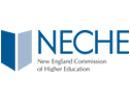
Regionally accredited by the New England Commission of Higher Education
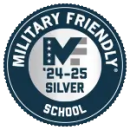
Designated as a Military Friendly School for our commitment to the military community
Ranked among the best by Tech Guide for game design and computer science
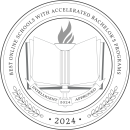
Named the among the best schools with accelerated bachelor's degrees by Intelligent.com
Meet the Program Director
Lanaya Sandberg, MBA, MS Healthcare Administration
- BS, Healthcare Administration
- MS, Healthcare Administration
About
Lanaya Sandberg is Assistant Professor and Director of the undergraduate and graduate Healthcare Administration programs at Champlain College Online. She has worked in various roles within the healthcare delivery system over the course of her career, beginning initially in provider contracting for managed care organizations before working on mergers and acquisitions, operational and strategic planning, and dental benefits administration. She has held positions as Chief of Staff, Associate Vice President, and Director during her time working in management support, client engagement, strategy and provider network management, and revenue cycle management.
Lanaya is a three-time graduate from Champlain College, having earned a bachelor’s degree in Business Administration, an MBA, and a master’s degree in Healthcare Administration. She is a Certified Physician Practice Manager, a Certified Professional Compliance Officer, earned her Fellow, Academy for Healthcare Management credential, and has her Lean Six Sigma Green Belt certification.
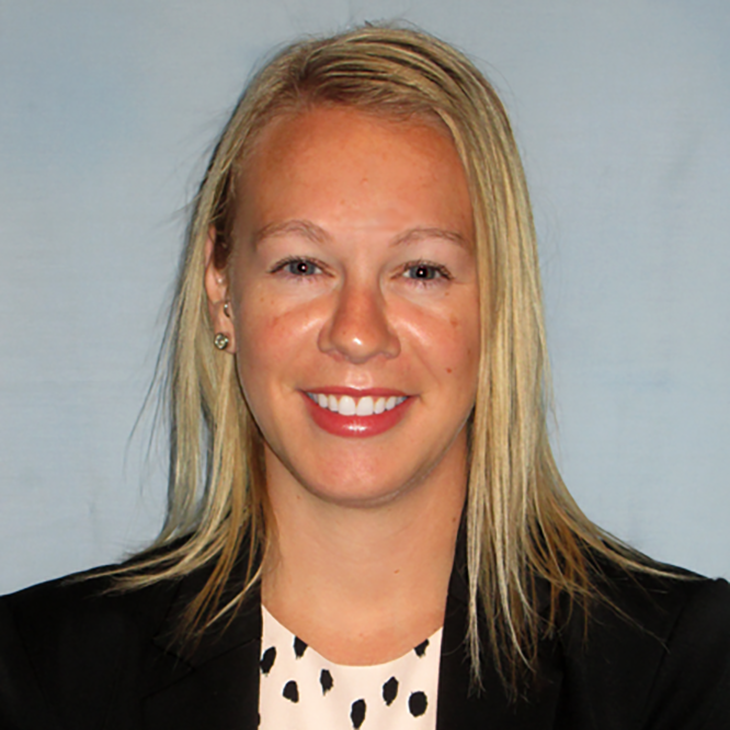
Frequently Asked Questions
Healthcare administration is the management and leadership of healthcare organizations, such as hospitals, clinics, nursing homes, and public health agencies. It involves overseeing operations, ensuring efficient service delivery, and making strategic decisions to improve patient care and organizational performance. Learn more in our blog, What is Healthcare Administration?.
The career outlook for the healthcare administration field is very promising, with a projected much faster than average job growth oof 29 percent through 2033. If that statistic is a appealing, learn if a career in healthcare administration is a good choice for you.
Typically takes 4 years of full-time study to earn a Bachelor of Science (BS) or Bachelor of Arts (BA) in Healthcare Administration. However, the Bachelor’s in Healthcare Administration at Champlain College can be completed in as little as 3 years and 4 months.
You May Also Be Interested In
Learn More About The Bachelor's in Healthcare Administration Program
Learn what to expect from our online bachelor's in healthcare administration program.

Download Program Guide
I acknowledge that, by clicking the "submit" button, I am giving my express written consent to Champlain College and its representatives to contact me about educational opportunities via email, text, or phone, at the phone number above, including my mobile phone, using an automatic dialer, or pre-recorded message. Message and data rates may apply. I understand that my consent is not a requirement for enrollment, and I may withdraw my consent at any time.






